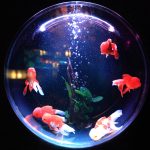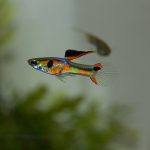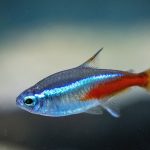Top 10 Koi Fish Feeding Tips: Keep Your Koi Happy and Healthy!
Koi fish are fascinating and beautiful creatures that have been cherished for centuries. Their vibrant colors and graceful movements bring serenity to any water garden or pond. To keep your Koi fish thriving, it’s crucial to provide them with the right nourishment and care. In this comprehensive guide, we will share the top 10 Koi fish feeding tips to ensure your beloved fish live a long, happy, and healthy life.
Top 10 Koi Fish Feeding Tips
Tip 1: Choose High-Quality Koi Fish Food
The foundation of a healthy Koi diet is high-quality fish food. Look for fish food specifically formulated for Koi, as it contains essential nutrients and vitamins tailored to their needs. Opt for pellets over flakes, as pellets are easier to digest and cause less waste in the water, maintaining better pond water quality.
Tip 2: Provide a Varied Diet
Just like us, Koi fish appreciate a diverse diet. Alongside the staple pellets, offer them treats such as freeze-dried shrimp, bloodworms, or brine shrimp. These occasional treats add excitement to their meals and provide additional nutrients.
Tip 3: Follow a Feeding Schedule
Establishing a regular feeding schedule is crucial for maintaining your Koi fish’s health. Feed them 2-3 times a day, but only offer an amount they can consume within 5 minutes. Overfeeding can lead to obesity and water quality issues.
Tip 4: Monitor Water Temperature
Koi fish have different metabolic rates depending on water temperature. In colder months, their metabolism slows down, so reduce feeding frequency and stick to easily digestible food. During warmer months, increase the frequency but maintain small portions.
Tip 5: Be Mindful of Seasonal Changes
During spring and fall, Koi fish require more protein-rich food to support their growth. As winter approaches, switch to a low-protein diet to prepare them for hibernation. Adjust their diet with the changing seasons to ensure optimal health.
Tip 6: Feed in Small Groups
Koi fish are social creatures, and feeding time is an opportunity to observe their interactions. To prevent bullying or aggressive behavior, scatter the food in multiple spots, encouraging them to eat in smaller groups.
Tip 7: Avoid Overcrowding During Feeding
Overcrowding can lead to stress and competition during feeding time. Ensure your pond has enough space for all your Koi fish to comfortably eat without feeling threatened.
Tip 8: Consider Automatic Feeders
If you have a busy schedule or will be away for a few days, consider investing in automatic feeders. These devices ensure your Koi fish receive their meals on time, even when you’re not around.
Tip 9: Monitor Feeding Behavior
Observe your Koi fish during feeding time for any signs of abnormalities. Changes in appetite or swimming patterns could indicate health issues. Adjust their diet accordingly and consult a veterinarian if needed.
Tip 10: Maintain Clean Water
Proper Koi fish feeding goes hand in hand with maintaining a clean pond. Excess food that remains uneaten will decompose, leading to poor water quality. Use a skimmer net to remove any uneaten food promptly.
FAQs (Frequently Asked Questions)
Q: How often should I feed my Koi fish?
A: For most of the year, feed your Koi 2-3 times a day. However, during colder months, reduce feeding to once a day.
Q: What is the best food for Koi fish?
A: High-quality Koi fish pellets that contain essential nutrients and vitamins are the best choice for their daily diet.
Q: Can I hand-feed my Koi fish?
A: While hand-feeding can be a delightful experience, it’s best to avoid it as it may lead to aggressive behavior or accidental injuries to the fish.
Q: How do I know if I’m overfeeding my Koi fish?
A: If food is left uneaten after 5 minutes or if you notice deteriorating water quality, you might be overfeeding them.
Q: Can I feed my Koi fish fruits and vegetables?
A: While Koi can eat fruits and vegetables, they should only be occasional treats and not the primary part of their diet.
Q: Is it normal for Koi fish to eat plants in my pond?
A: Yes, Koi are omnivorous and may nibble on aquatic plants, but they should have a balanced diet with proper fish food as the main component.
Conclusion: Nourish Your Koi, Witness Their Beauty
Feeding your Koi fish is not only about providing sustenance but also about building a bond with these magnificent creatures. By following the top 10 Koi fish feeding tips mentioned in this article, you can create a thriving environment for your fish and ensure they live a long and healthy life. Remember to choose the right fish food, maintain a feeding schedule, and be attentive to their behavior during mealtimes. With proper care and nutrition, your Koi fish will continue to captivate and bring joy to your water garden for years to come.




